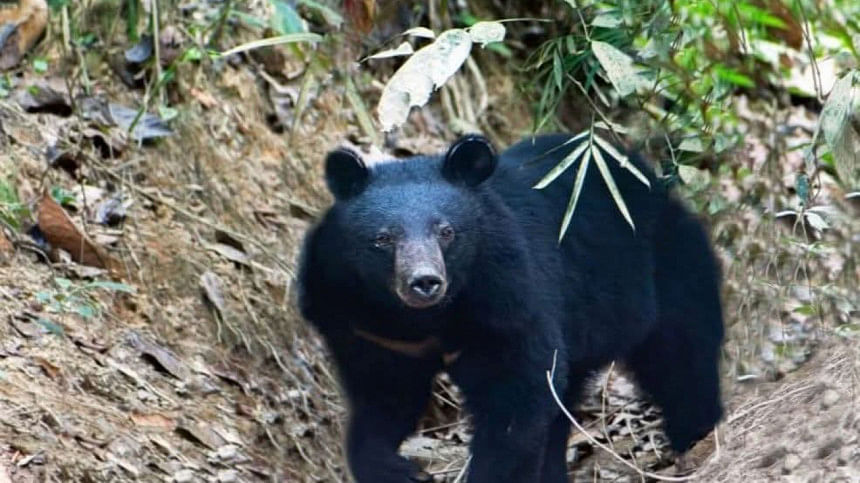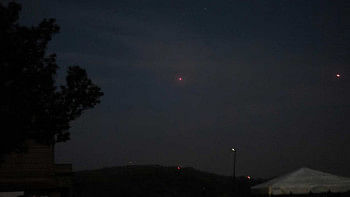Rare Asiatic black bear spotted in Satchari park

A rare Asiatic black bear (Ursus thibetanus), also known as the "moon bear," has been spotted in the dense forest of Satchari National Park in Chunarughat upazila, Habiganj.
The sighting has prompted authorities to issue warnings to visitors about safety and to restrict free movement within the park.
The discovery was made by Haris Deb Barma, a 30-year-old amateur photographer and member of the Tripura community.
"I couldn't believe such a rare species lived in this forest when I first saw it," he said. "I immediately took a photo, and after consulting with zoologists, I confirmed it was indeed an Asiatic black bear."
The species is classified as "vulnerable" on the International Union for Conservation of Nature Red List.
Beat Officer Mamunur Rashid said, "This is an endangered species of Asiatic black bear. They are globally vulnerable. They are rarely seen and very aggressive in nature. We estimate there are 10-12 such bears, both large and small, in the park. We are taking additional steps to preserve them and are cautioning tourists about potential risks."
These bears, known for the distinctive "V" or half-moon-shaped white patch on their chests, belong to the carnivorous family but mainly feed on insects, fruits, and honey. Except for mothers with cubs, they are solitary animals, often seen climbing trees and roaming the forest day and night in search of food.
Md Rezaul Karim Chowdhury, former divisional forest officer in Sylhet, said, "There were once four species of bears in the subcontinent, three of which were found in Bangladesh. Now, only two species remain, both critically endangered. Habitat destruction, hunting, smuggling, and food shortages have brought them to the brink of extinction."
"At one time, these bears thrived in the mixed evergreen hill forests of Sylhet and Chattogram. Now, only a few remain in the deep forests, struggling to survive. Publicising their presence could pose serious risks to their safety, as it may attract hunters."
Mohammad Robin Mia, upazila nirbahi officer of Chunarughat, said, "We must ensure these bears are neither hunted nor smuggled. Additionally, we need to create a sustainable food supply for their survival and engage local communities in conservation efforts."
The Wildlife (Conservation and Security) Act of 2012 protects endangered species in Bangladesh, making hunting, killing, or harming them a punishable offence, he added.

 For all latest news, follow The Daily Star's Google News channel.
For all latest news, follow The Daily Star's Google News channel. 



Comments